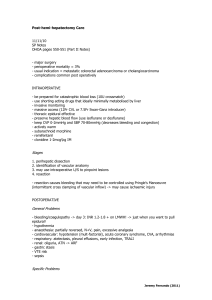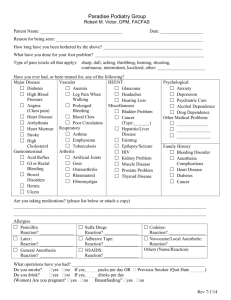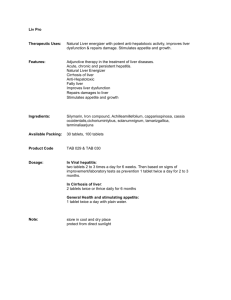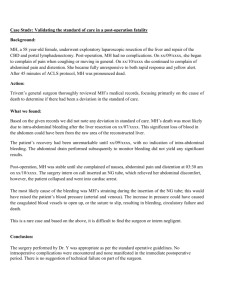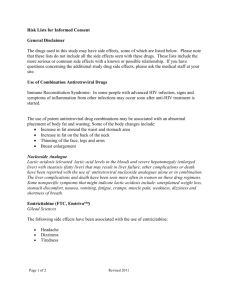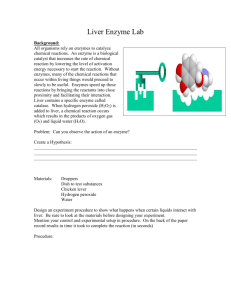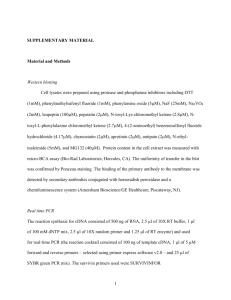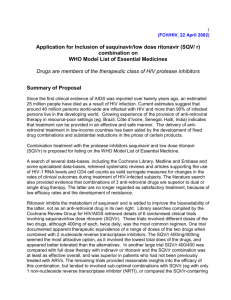Use of Combination Antiretroviral Drugs
advertisement
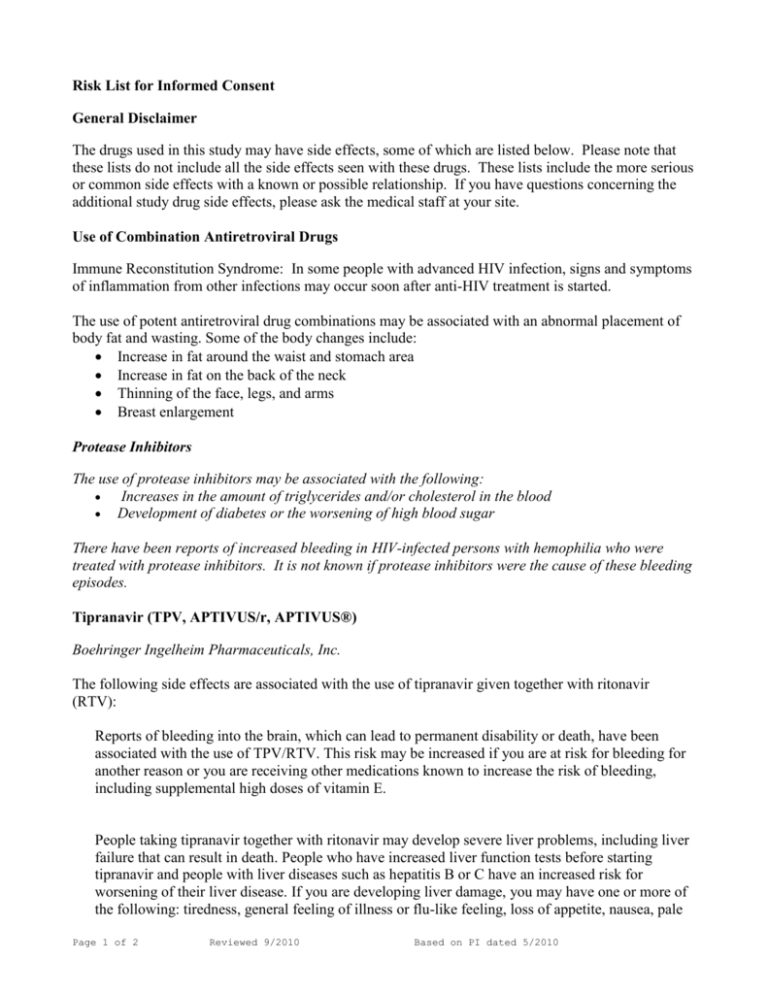
Risk List for Informed Consent General Disclaimer The drugs used in this study may have side effects, some of which are listed below. Please note that these lists do not include all the side effects seen with these drugs. These lists include the more serious or common side effects with a known or possible relationship. If you have questions concerning the additional study drug side effects, please ask the medical staff at your site. Use of Combination Antiretroviral Drugs Immune Reconstitution Syndrome: In some people with advanced HIV infection, signs and symptoms of inflammation from other infections may occur soon after anti-HIV treatment is started. The use of potent antiretroviral drug combinations may be associated with an abnormal placement of body fat and wasting. Some of the body changes include: Increase in fat around the waist and stomach area Increase in fat on the back of the neck Thinning of the face, legs, and arms Breast enlargement Protease Inhibitors The use of protease inhibitors may be associated with the following: Increases in the amount of triglycerides and/or cholesterol in the blood Development of diabetes or the worsening of high blood sugar There have been reports of increased bleeding in HIV-infected persons with hemophilia who were treated with protease inhibitors. It is not known if protease inhibitors were the cause of these bleeding episodes. Tipranavir (TPV, APTIVUS/r, APTIVUS®) Boehringer Ingelheim Pharmaceuticals, Inc. The following side effects are associated with the use of tipranavir given together with ritonavir (RTV): Reports of bleeding into the brain, which can lead to permanent disability or death, have been associated with the use of TPV/RTV. This risk may be increased if you are at risk for bleeding for another reason or you are receiving other medications known to increase the risk of bleeding, including supplemental high doses of vitamin E. People taking tipranavir together with ritonavir may develop severe liver problems, including liver failure that can result in death. People who have increased liver function tests before starting tipranavir and people with liver diseases such as hepatitis B or C have an increased risk for worsening of their liver disease. If you are developing liver damage, you may have one or more of the following: tiredness, general feeling of illness or flu-like feeling, loss of appetite, nausea, pale Page 1 of 2 Reviewed 9/2010 Based on PI dated 5/2010 stools, dark urine, yellowing of the skin or whites of your eyes, liver tenderness and increases in liver enzymes in the blood. Additional side effects of TPV/RTV include: Stomach cramps or pain, heartburn, and abnormal bowel movements (stools), including loose or watery stools, which may result in dehydration Upset stomach (nausea, vomiting), decreased appetite Feeling weak and tired Headache Rash, which may be severe. Women taking estrogen hormones may have a higher risk of getting a rash. Abnormal increases in triglycerides and cholesterol in the blood Pancreatitis (inflammation of the pancreas) Note: Before starting tipranavir, you should inform your health care provider if you are allergic to sulfa medicines. While receiving tipranavir, you should inform your health care provider if you have any unusual or unexplained bleeding. Note: Your healthcare provider can provide more complete information about the side effects of ritonavir (the medicine you need to take together with TPV). Page 1 of 2 Reviewed 9/2010 Based on PI dated 5/2010
